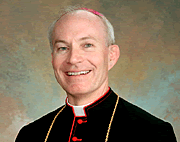Reconciliation Offer
There was a major push this past Lent for people to go to confession, now called the milder, “Sacrament of Reconciliation.” I’m not sure how many people followed through on this appeal, since the concepts of sin and priestly authority to forgive it have lost so much credibility in the last four decades, especially from the sex abuse crisis of the 90s, and the uncovering of the hypocrisy of so many influential religious figures.
In a survey released on April 13th by CARA, the Center for Applied Research in the Apostolate at Georgetown University, only 2% of Catholics said they participate in the Sacrament of Reconciliation once a month or more; and 45% say they never make a sacramental confession. 62% of Catholics agree “somewhat” or “strongly” with the statement, “I can be a good Catholic without celebrating the sacrament of reconciliation at least once a year.”
One of the reasons I hesitated in going to confession is that I wondered if the promotion of this sacrament now was primarily a push to restore power and authority to priests. The other is that I was unsure of the sacrament itself–surely it can’t be the same recital of mortal and venial sins we did as kids. It had to be deeper, more adult–an event, a circumstance of life, belief or time we kept silent in the face of abuse or injustice that makes us feel alone and unloved, or ashamed, or sad or angry. But how to approach this reconciliation was never articulated.
If people think they have to confess using birth control, or getting a divorce and remarrying, or making love with a member of their own sex within a commited relationship or without; then the light on the confessional door will remain off. People are not going to give up loving relationships or sex. These two things are the barriers for many Catholics to enter a confessional–because they cannot reconcile themselves to living without love, and human warmth and intimacy.
Bishop George Lucas of Springfield, Illinois authored a pastoral letter on the sacrament of reconciliation that I found to be gentle and sincere. I appreciated him touching directly on the the hurts and estrangement that sex abuse victims, women who have had abortions, divorced and remarried people, women who feel barred from priestly ministry, and what gay and lesbian Catholics, hear and feel from their church.
His is not a positive message of hope by any stretch of the imagination, but it is a hand of welcome. We don’t have to accept what he has to say as truth, or strive for change less, but I believe when a hand is extended in a genuine wish for contact, we should take the risk and extend ours, too. 
The entire pastoral letter is worth reading. His specific comments on gay and lesbian Catholics follow:
“Homosexual persons may feel that there is no place for them in the Catholic Church. Church teaching about homosexual orientation and practices may seem harsh, particularly as voices in modern culture wrongly portray those teachings as designed to deprive persons of their rights. I want any homosexual person to know that the Catholic Church supports your human dignity, wants to accept you as a full member and offers you the same share in the life of God’s grace enjoyed by all the baptised.”
“It is my responsbility to affirm the teaching of Jesus that calls each of us to live chastely, according to our state in life. The call to chaste living is challenging for many in our culture. It can be a particular challenge for persons with a homosexual orientation who cannot look forward to a chaste sexual partnership within the context of married life.”
“This challenge is not experienced only within the Catholic community. We see other Christian communities suffering fracture because of the struggle to be true to Gospel teaching, to preserve the traditional teaching of God’s design for marriage and to respect the true human rights of all. In the face of these challenges, I offer my prayful acceptance and support to homosexual persons who wish to live as full members of the church. I offer my encouragment as well to count on the grace of God to sustain your desire to come to full stature in Christ.”
